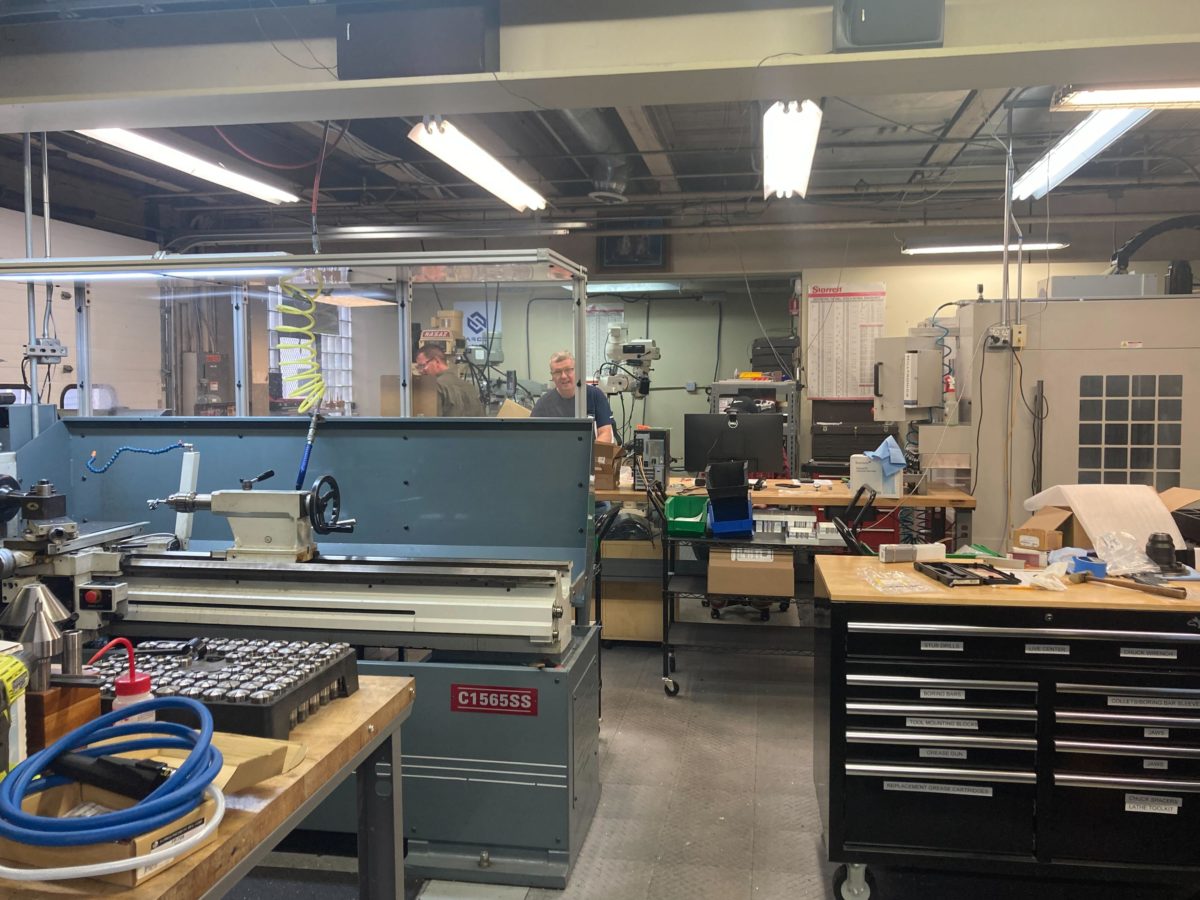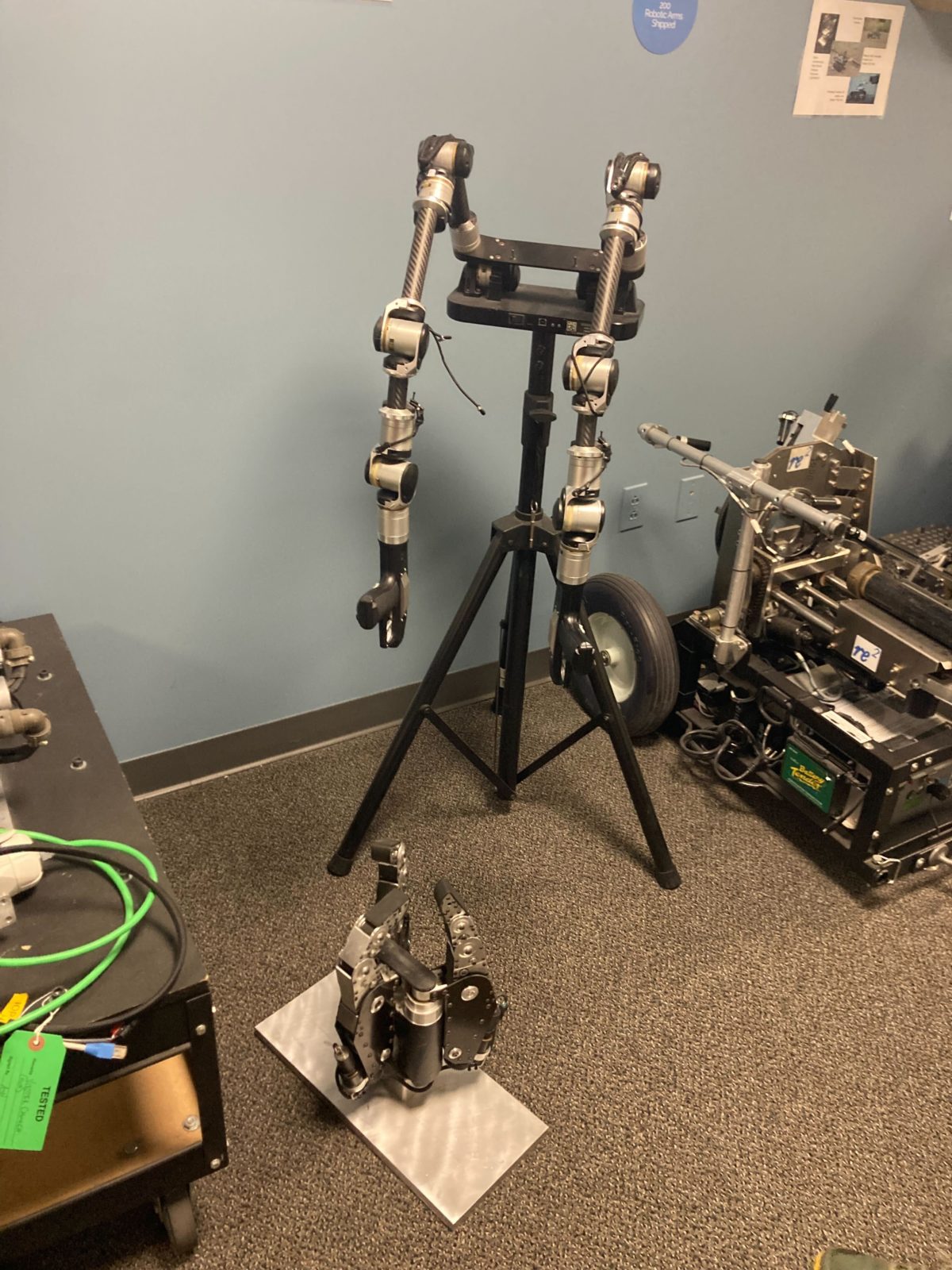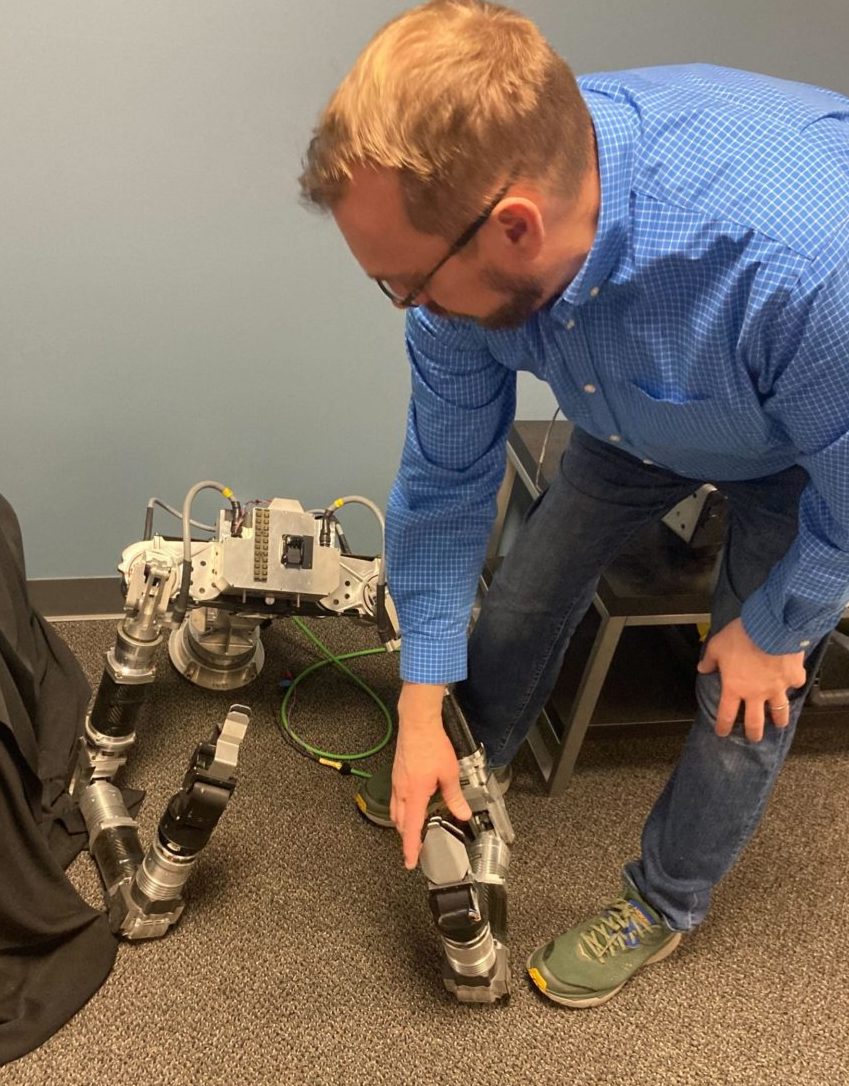Since Sarcos Robotics acquired RE2 Robotics for $100 million in spring 2022, effectively taking it public, the two companies have faced the challenge of becoming a cohesive unit, mission first.
Last year was spent figuring out how RE2’s Pittsburgh team and Sarcos’ Salt Lake City employees were going to work together, Sarcos Chief Operating Officer Jorgen Pedersen told this reporter during a tour of the facilities. Pedersen, RE2’s founder and former CEO, explained that despite the new name, the company’s goal has remained the same: to create robots that assist with “injury prone” jobs.
“We’re looking to go into the world, whether that be in a construction site, or out onto a tarmac, and help workers do their jobs more safely,” Pedersen said. “That’s what drew Sarcos to us. We were aligned in our vision, so at the time of acquisition, nothing had to change, really.”
Away from the restaurants and tattoo shops in Lawrenceville, before the acquisition, the company was already undergoing a lot of changes. Pedersen recalled that since 2020, the RE2 staff in Pittsburgh has doubled from 50 to 100. During that time, the company also expanded to two new buildings in the neighborhood. Still, due to a lack of space while the company searches for a fourth location, some of the employees have continued working remotely. That is, with the exception of engineers and manufacturers.
“During the design phase, you can be anywhere if you’re just writing code, but during the test phase you need to be on site,” Pedersen said. “COVID changed the world.”

So, what’s being built in the Lawrenceville facilities? If you walked in, you could see engineers working on the O-AMPP, a robotics system for solar field construction through a partnership with JLG Industries that began before the Sarcos acquisition. Although it’s still a work in progress, by the time it’s finished, the hope is that it’ll leave the heavy lifting involved in placing solar panels to the robot and ease the physical burden for human workers.
Pedersen believes that RE2 and Sarcos’ shared desire to make jobs that range from mundane to hazardous safer and more efficient is why the two companies fit together so well.
“We had complementary technologies,” Pedersen said. “They had more anthropomorphic technologies and exoskeletons, we had more mobile manipulation technologies. So when the worlds came together, it was just a nice dovetail of capabilities, which was not only additive, it multiplied our capability.”

Scattered throughout the Sarcos buildings are robots that chart the company’s history before and after the acquisition. Lined up under news clippings that explain their significance are smaller machines that were produced when Carnegie Mellon University was RE2’s biggest customer. The machines also show when the company shifted over to robots constructed to suit the Department of Defense’s needs in 2005.
Now the company divides its work between commercial and defense and is constantly looking to hire engineers to keep up with the demand for its products. No employees from Salt Lake City have transferred to the Pittsburgh location, so most of its hires come from the city.
“It’s easier to hire in Pittsburgh because the talent pool is larger,” Pedersen said.
He added that he believes that was a part of the draw for Sarcos. Furthermore, due to so much of the hardware being made here, Salt Lake City employees travel to Pittsburgh more than in the reverse (though Pedersen himself ventures to Salt Lake City at least once a quarter).
All the same, Pedersen says that nearly a year after the acquisition was finalized, the engineering teams can work together collaboratively on projects.
“The engineering teams are coming together and starting to jointly develop technology,” he said. “It’s not just Pittsburgh and it’s not just Salt Lake City, it’s everyone together.”







